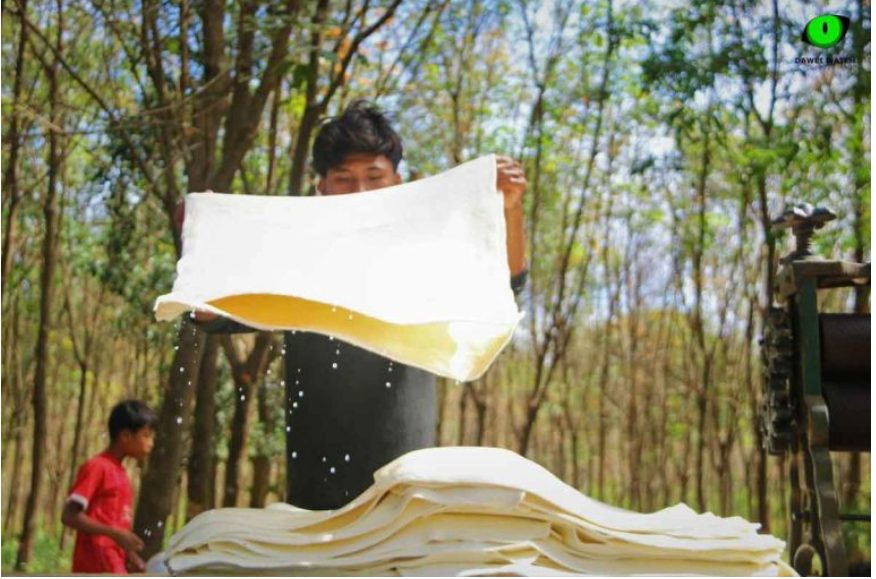Mawlamayine, November (23)
Transactions in the rubber market of Mon State have completely halted as a result of the junta-controlled Central Bank’s restriction that export earnings be exchanged within one working day, the rubber traders said.
On November 18, the Central Bank issued instructions requiring that 65 percent of export earnings be converted into Myanmar kyat in accordance with the reference price within one working day.
Furthermore, importers are free to use the remaining 35% of their export earnings within 30 days and must sell them to others through AD-licensed banks.
Among the exports listed by the Central Bank of the Military Council are pulses, oilseeds, corn, rubber, aquatic products, animals, and animal products, and the directive will come into effect on November 21.
A rubber farmer claimed that as a result of the Central Bank’s directives, trading activity in the rubber industry has virtually ceased and dealers are not purchasing rubber.

According to a rubber entrepreneur, the situation in Mon State’s rubber sector may worsen as a result of the military council’s instructions, and financial difficulties may arise.
Rubber growers are currently unable to even set the price of rubber due to the ongoing decline in rubber price and the fact that factories and traders no longer order rubber.
Before the Central Bank of the Military Council gave the order, China and Thailand were major buyers of rubber, but now the trade has totally halted.
The price of rubber decreased from 1,800 kyats to 1,100 kyats a pound when the rubber business stopped, and rubber producers are now having trouble.
Rubber input prices have nearly quadrupled since the military coup, and farmers are in dire straits due to high wages and general costs.
Mon State has more than 500,000 acres of rubber plantations, producing more than 100,000 tons of rubber every year, earning millions of dollars from the rubber industry annually.
News-Than Lwin Times

